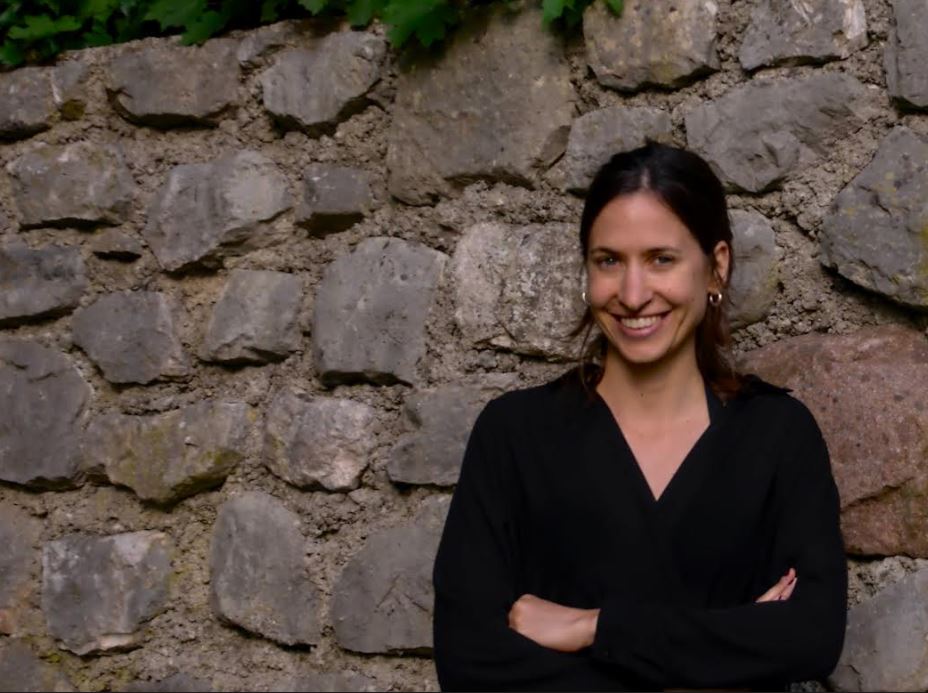Welcome, Microbiome Research Group!
Welcome, Microbiome Research Group!
The laboratory directed by Mireia Vallès Colomer is established at MELIS-UPF to study, through computation, the relationship between the microbiome and human health and its transmission in the population.

Mireia Vallès Colomer (Folgueroles, 1990) today begins to lead the Microbiome Research Group at the UPF Department of Medicine and Life Sciences (MELIS), thanks to the University’s recruitment programme of full professors.
After graduating in Biotechnology at the Autonomous University of Barcelona, Mireia completed a master's degree in Biomolecular Sciences at the Vrije Universiteit Brussel where, while taking the subject 'Bioinformatics of the microbiome', she discovered the importance that this microscopic universe can have on human health.
"For me, Bioinformatics is an essential tool to better understand the biology of our body. When you study the microbiome you realize that there is a lot of variation between individuals, either due to diet, genetic factors, etc., but there is also a lot of variation in the abundance of the different microbial species that the same individual has at different times in their life due to suffering diseases, taking drugs, aging, the menstrual cycle, and so on. And in this scenario, bioinformatics and statistics are essential to distinguish which of the factors we are dealing with are actually associated with changes in the microbiota."
Bioinformatics and statistics are essential to distinguish which of the factors we are dealing with are actually associated with changes in the microbiota
Her first contributions to microbiome analysis came during her PhD at VIB-KU Leuven, where she studied the relationship between the microbiome and mental health in the laboratory of Jeroen Raes.
Through the gut-brain axis, the microbiome communicates with the brain, and can thus affect mental health. "One direct pathway is through the production and degradation of molecules with neuroactive potential such as serotonin or dopamine. During the doctorate, I developed a bioinformatics tool to analyse the production and degradation of this kind of molecules, which allowed us to perform the first study between microbiome and mental health in the population.
With the desire to refine the resolution of the computational techniques used and in order to understand where we receive the microorganisms that we have in our gut and that so greatly affect our health, Mireia joined Nicola Segata's laboratory at the University of Trento, where she did her postdoc thanks to an EMBO grant.
"Until now, the microbiome has often been studied at species level, and we have contributed to increasing the resolution to strain level; studying the DNA sequences of bacteria allows us to infer whether microbiome has been transmitted between people. Thanks to this high-resolution bioinformatic analysis, Mireia and the lab team have been able to determine that the microbiome is transmitted not only from mothers to children but also between people who cohabit.
The Microbiome Research Group
Mireia comes to MELIS-UPF with the idea of integrating the two lines of research she has been studying. "Now that we have seen how the microbiome is transmitted between healthy people, we want to see how this transmission occurs in certain diseases related to alterations in the microbiome. And when it comes to the microbiome and mental health, we have started a pilot project to explore these diseases with the new high-resolution analysis techniques."
Hence she is counting on the collaboration of her home laboratory at the University of Trento and several research groups and hospitals at European level. However, the researcher hopes that coming to such a diverse Department in the ecosystem of the Barcelona Biomedical Research Park will facilitate the establishment of new collaborations.
In addition, Mireia will be responsible for acting as a bridge between the Scientific Computing Core Facility of MELIS and the research community, and will be teaching the students of the faculty, which she is particularly excited about since "it is essential that we transfer the knowledge that we are acquiring through research to future students!”.
